Biographical Sketches of Colonials-D-
Daley, Benjamin, was born 1750 in South Carolina, served in the Georgia Militia, married 6 January 1774 in Effingham County, Susanna Garnett, the sister of Thomas Garnett. Children:
- Elizabeth Daley born 22 December 1774 Effingham County.
- Susanna Daley married Clayborne Beville, the son of Robert Beville.
- Andrew Danielly, born ca 1765, died December 1822 in Warren County, Married 1st, on 29 February 1790 in Richmond County, Jane Harris, and 2nd, Rhoda. Children:
- Rachel born ca 1788 Richmond County married 12 October 1809 in Warren County, Henry Chambliss.
- Jane born 1794 in Hancock County, married 30 November 1814 in Warren County, Samuel Chambliss. She died 15 October 1867.
- Arthur Danielly born Hancock County 1794, married 1st on 13 February 1819 in Hancock County, Jane Deveaux, and 2nd, on 2 January 1828, Jane Kinsey.
- John Danielly born 1 April 1803 Warren County, died 8 April 1870 in Clay County, Alabama, married 1st on 11 March 1828, Martha Castleberry, and 2nd to Malinda Wood on 23 September 1845 in Monroe County.
- Ann Danielly born ca 1804 in Warren County, married 31 March 1824, Ezra McCrary, in Warren county.
- McDade Danielly, born 1801 in Warren county, married 20 August 1822 in Warren County, Pesaly W. Gibson. He died November of 1882 in Crawford County.
- Francis Danielly, died 1821 in Baldwin County.
- Arthur Danielly, died 1821 in Baldwin County, intestate.
- Francis Danielly Married Elizabeth Ayres, the daughter of Thomas Ayres, the latter dying 1773 in Richmond County.
- Daniel born ca 1768, died after 1802, married Elizabeth Prather on 10 April 1788 in Richmond County.
- Redden Danmark born 1770 in Screven County, died 1814, married Lavinia Wise, the daughter of William Wise.
- Elizabeth Darling, bequeathed 500 acres and 150 acres in the Parish of St. David.
- Kenneth Darling inherited two plantations, one purchased from Dr. John Irvine.
Davidson, Edward,young man, who has served his time with James Anderson, desired Freehold Lott in Savannah, No. 9, 4th Tything Ward in Lower New Ward.
Davis, John had a plantation at the head of the Midway River, adjoining that of Parmenus Way. To his son, John, he left 450 acres called the Hanie Swamp in St. Johnís Parish; to William, five tracts located on the north side of the Midway River, containing 1,150 acres in all. Children:
- John Davis
- William Davis
- Sarah Jones
- Catherine Morecock
- Rebecca Patterson
- Theodora Davis
Davison, Samuel, from Rupert Street in London, lived in Frederica with his wife, Susannah. Son, John, born 1735, daughter, Susannah, another child and a servant. In 1735 he was made Constable of Frederica and paid ten pounds per year, and in July of 1739 he was made Overseer of the Trust Servants in Frederica. From 1736 to 1740 he served as Searcher of Ships. He shared a joint house with the violate Thomas Hawkins, with whom he frequently argued, and when he tried to expand the home, Hawkins complained that his improvements threatened the visibility of his own home, then induced Oglethorpe to take his side and force Davison to stop the building. By October of 1741, after being refused further improvements, the Davison family moved into some stables, and finally removed to South Carolina. Davison, one point he worked on building a magazine for the fort as well as a wooden foot-bridge across the Savannah River (St. Simonís Island). John Wesley wrote that Davison, although a Presbyterian, was one of his best parishioners. Davison was known to be very industrious, running an Ale House, and having a lot 6-7 mi. out of town which he cultivates, 20 hd of cattle, servants, 2-3 carts, and brick house at Frederica.
DeFeron, Joseph of Highgate. His will is written in French. He was a Captain in the service of His Majesty the King of Great Britain. To his wife he left 50 acres of land "that the Trustees have had the kindness to give me", for the rest of her life. If the King will not grant to his wife, then a legacy of 24 pounds per year to go to his mother, Madame de Feron through the revenue of the land.
Delegal, David was granted in May of 1771, 100 acres on the South Newport River, adjoining lands of John Jones and John Barger; also 450 acres on South Newport River, St. Andrews Parish, bounded on the south by lands of Roderick McIntosh. He was raised in the Province of Georgia, and had nine slaves at the time of Grant. In November of the same year he received 54 acres and 300 acres in St. Andrews Parish. At the onset of the Revolutionary War, David Delegal was faithful to Great Britain, therefore,in 1782, his estates were confiscated and he was declared guilty of Treason. David Delegal was issued Letters of Administration on the Estate of David Delegal, Sr., late of Chatham County, 12 February 1790.
The Fort of Philip Delegal on St. Simons Island
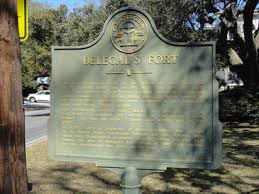
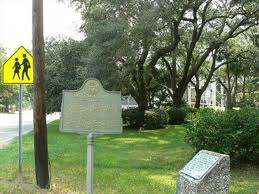
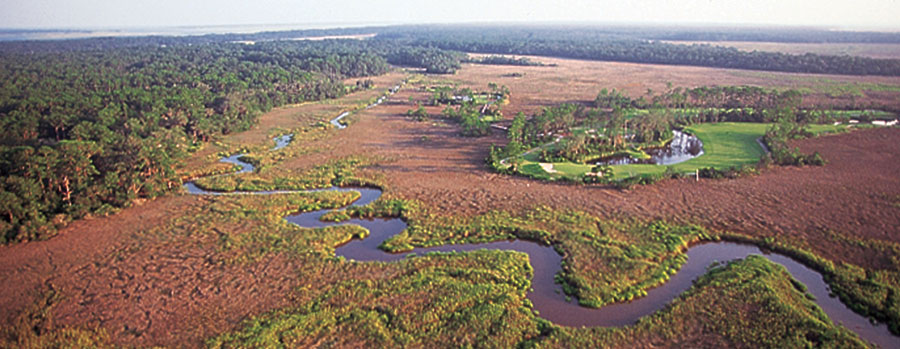
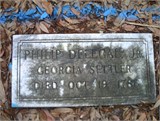 The first fortification built by the British on the south end of St. Simons Island was erected near this sight in April, 1736, by soldiers of the South Carolina Independent Company under command of Lieutenant Philip Delegal. Before coming to St. Simons these soldiers had been stationed at Fort Frederick, near Port Royal, South Carolina. The fortification erected here, know as Delegals Fort at Sea Point, commanded the entrance to the harbor, and was thusly located "so that all ships... must pass within shot of the point." In 1738, when a regiment of British soldiers was brought to St. Simons Island, Lieutenant Delegal and his soldiers were taken into the Regiment of General Oglethorpe. Then, Fort St. Simons was built taking the site of the old Delegal Fort. Most of the area covered by this fortification has been washed away. His original land grant included the Hampton Golf Club Resort. The grave of Philip Delegal is at the 13th hole of the Palmetto Golf Course.
The first fortification built by the British on the south end of St. Simons Island was erected near this sight in April, 1736, by soldiers of the South Carolina Independent Company under command of Lieutenant Philip Delegal. Before coming to St. Simons these soldiers had been stationed at Fort Frederick, near Port Royal, South Carolina. The fortification erected here, know as Delegals Fort at Sea Point, commanded the entrance to the harbor, and was thusly located "so that all ships... must pass within shot of the point." In 1738, when a regiment of British soldiers was brought to St. Simons Island, Lieutenant Delegal and his soldiers were taken into the Regiment of General Oglethorpe. Then, Fort St. Simons was built taking the site of the old Delegal Fort. Most of the area covered by this fortification has been washed away. His original land grant included the Hampton Golf Club Resort. The grave of Philip Delegal is at the 13th hole of the Palmetto Golf Course.
Delegal, Philip, served as a faithful Captain of Fort Frederica under General Oglethorpe, and at the time of his death was a Captain in the Regiment of Invalids of Lieutenant General Parson, St. Peters Port, Island of Guernsey. December 19, 1751 he was granted 500 acres, adjoining that of his son. In 1755 he returned to the Legislature representing the Great and Little Ogeechee Districts, also elected a Member of the House. In 1757 he carried a bill to the Council to prevent any person from trading or encouraging Indians to come into Georgia. His first wife was Jane, because of a deed from James Tebeau and Susan, his wife, of Little Ogeechee District dated 5 June 1754 to Philip Delegal and his wife Januarye, of Little Ogeechee District, and Trustees Charles Watson and Noble Wimberly Jones of Savannah, the plantation of James Tebeau on the Little Ogeechee River, 300 acres, adjoining lands of Philip Delegal, James Dixey and Henry Bourquin, bounded on the southwest by Henry and Benedict Bourquin (brothers), and all other lands now or lately belonging to Walter Fleming. The land to be held in trust by Watson and Jones for the use of Philip Delegal during his natural life. Then, a life estate to go to Januarye, then to Philip Andrew Noble Delegal, the son of said Philip and Jane. When Capt. Delegal died in January of 1769, his wife, Eleanor, removed herself to reside at Philips Bluff, a plantation in South Carolina already deeded her by her husband. Issue:
- Philip Delegal lived at Savannah. He received a land grant of 103-1/3 acres in Christ Church Parish on May 1, 1764. In March of 1771 he petitioned for an additional 150 acres of land on Racoon Hammocks, Christ Church Parish, but the grant was rejected. He was granted 200 acres north of Little Ogeechee, adjoining 64 acres already granted to him in Christ Church Parish. Colonial Deed Book C-1, p. 35, William Lee to Capt. Philip Delegal, Jr., receipt dated August 12, 1755, Savannah, for the sale of a negro woman named Aubah. Also, for negro man, Prrinces.
- Edward Delegal, a Planter, resided in McIntosh County and died during December of 1771 in Chatham County. He was married to Mary, and they had the following Children: Marella Delegal and Mary Ann Delegal.
- Sophia Delegal, resident of South Carolina.
- Catherine Delegal married Hugh Campbell, a South Carolina Marina.
- John Delegal, a South Carolina Mariner.
- George Delegal, a Georgia Planter, granted a Lot at Hardwick of 200 acres on April 1755. He petitioned for land April 1771 for 250 acres in Christ Church Parish, adjoining lands of Honorable James Habersham, Esquire. Also, for 582 acres for the children of his deceased brother, Edward, Marella and Mary Ann Delegal, May of 1771. Served in The General Assembly of Georgia in 1771. Wife, Jane. Had three children. Colonial Deed Book C-1, p. 126-127, Richard Warren, schoolmaster, Little Ogeechee, to George Delegal, planter, of Little Ogeechee, Bill of Sale dated 17 October 1767, a black man formerly belonging to John Hunney Horn and lately to William Russell, planter of Edisto Island, South Carolina.
Deloney, John Baptist. Wife: Mary Ann Last Children:- John Baptist Deloney
- Rosa Deloney, wife of John Young of Savannah, Mariner
- Elizabeth Deloney
- Raymond Demere. While visiting the plantation of Major Hardee on the Great Ogeechee River, Raymond was thrown from his horse and died half an hour later, May 1791.
- Daniel Derizous
- Elizabeth Derizous
- Peter Derizous
- Stephen Derizous
- Michael Derizous
DeVeaux, John of Little Ogeechee, was born ca 1704 in Berkeley, South Carolina, the son of Andrew (b. ca 1680 in Chateau De Veaux, France, died 1754 Pr. Andrews Parish, Charles Towne, South Carolina) and Magdalene Ann LeSade of France. The had the following children : Andrew; Magdalene; Israel; Margaret; James; John, and one other daughter. John married Sarah Sullivant 25 February 1737, probably in South Carolina and it was to her that he left the plantation consisting of 500 acres of land. Son, John was left 100 acres of land at the south end of Skidoway Island known as Balloons Bluff and 500 acres of a 950-acre tract of land called Silver Bluff at Great Ogechee. Daughter, Januarye left, 450 acres. Children:- Elizabeth DeVeaux
- John DeVeaux
- Jane DeVeaux, wife of George Delegal
Dick, John, Innkeeper, sutler, ranger. Had three children and a servant, resident of Frederica in September 1740, probably gone by August of 1744.Sunbury
Dickenson, Paynter, mariner. His plantation consisted of 250 acres on Collins Creek, being on the north side of the Midway River. To his wife, Ann, he left a lot at Yamacraw. Children:
- John Down Dickenson
- Elizabeth Dickenson, wife of Samuel Nelms of Sunbury, merchant
- Sarah Dickenson
- Thomas Dickenson, inherited all of his town lots in Sunbury.
Dobee, Elisha, first a resident of Carolina and Savannah, then moving to Frederica in 1735-1736 to be clerk of the stores. John Wesley mentioned his name in his diary as a potential laborer for the gospel. His wife had remained in England, and in 1737, he wrote the Trustees asking that they send his family to him, but she refused to go, saying that her husband could not support her and the three children.
Dobinson, John, bricklayer by July of 1743, but did not stay long, as he left for Carolina.
Doleman, Charles, a fisherman. Quit the colony before July of 1743.
Dollar, John, born 1742, Captain of the Continental Artillery in the American Revolution, died at his plantation Antrim, near Sunbury on 9 October 1797.
Donaldson, Robert, planter. Wife: Christian. Sister, Margaret Jamieson of the County of Aberdeen in the Parish of Fivey in North Britain.Battle of Kettle Creek

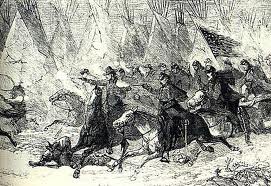

 Dooly, John, born in North Carolina, son of Patrick Dooly. John migrated from South Carolina to take up the ceded lands of Georgia (Wilkes County) in 1762, bringing with him a wife, three sons and three orphan nephews. He was killed by the Tories in 1780. His brother, Thomas Dooly, Revolutionary War Soldier, was killed 22 July 1776 in a skirmish with the Indians.
Early twentieth-century Georgia historian Otis Ashmore wrote that "of the many heroic men who illustrated that stormy period of the Revolution in Georgia that tried mens souls none deserves a more grateful remembrance by posterity than Col. John Dooly.". Almost all of the source material on Dooly came from a book by Hugh McCall, The History of Georgia (1816). The Battle of Kettle Creek distinguished John Dooly whom McCall described as a battlefield leader in the struggle for American Independence who lost a brother in an Indian attack which was led by patriots to victory over the Tories and ultimatey died at the hands of Tories in his own home, and thus was known as a folk lore hero.
Dooly, John, born in North Carolina, son of Patrick Dooly. John migrated from South Carolina to take up the ceded lands of Georgia (Wilkes County) in 1762, bringing with him a wife, three sons and three orphan nephews. He was killed by the Tories in 1780. His brother, Thomas Dooly, Revolutionary War Soldier, was killed 22 July 1776 in a skirmish with the Indians.
Early twentieth-century Georgia historian Otis Ashmore wrote that "of the many heroic men who illustrated that stormy period of the Revolution in Georgia that tried mens souls none deserves a more grateful remembrance by posterity than Col. John Dooly.". Almost all of the source material on Dooly came from a book by Hugh McCall, The History of Georgia (1816). The Battle of Kettle Creek distinguished John Dooly whom McCall described as a battlefield leader in the struggle for American Independence who lost a brother in an Indian attack which was led by patriots to victory over the Tories and ultimatey died at the hands of Tories in his own home, and thus was known as a folk lore hero.
Doors, James, planter, perukemaker. Wife, Martha. To his son, James, he left a town lot fronting on the bay in Savannah, No. 3, in Wilmington Tything, where he lived (lately purchased from James Mossman, Esq.; also 250 acres in Christ Church Parish lately purchased from Thomas Lee, bounded at the time of the grant in part by the land of John Goldwire. Issue:- James Doors
Douglass, David. In 1736 he bought Savannah Lot No. 170 at an auction for fifty pounds (due to Ja. Muier for two years rent) "A factious man; & went to Carolina for fear of the Spaniards 30 August 1740." Wife, Mary. Last Will and Testament dated 2 March 1759, probated 19 December 1763, pp. 116-117, Will Book A, Colonial Wills
Dunbar, George, Captain, master of the Prince of Wales, from Scotland, gave invaluable service to the colony by transporting supplies and mail along coastal Georgia. Also, he sailed to and from England with passengers and cargo. His plantation failed, along with many others, during the hardship period of the colony. For awhile he resided in Frederica, near his sister, Priscilla, who Married Sir Patrick Houstoun.
Dunwoody, James was the son of John Dunwoody and his wife, Susanna Creswell (daughter of William Cresswell) of Chester County, Pennsylvania, and was born 1741 in Chester County, Pennsylvania, died Liberty County in 1807, having migrated to Georgia in 1770. He married Esther (Dean) Splatt in 1774, the daughter of Abraham Dean and his wife, Ann Du Pont. Children:- James Dunwoody, Jr. married Elizabeth West Smith.
- John Dunwoody married Jane Bullock.
- Esther Dunwoody married Sen. John Elliott.

